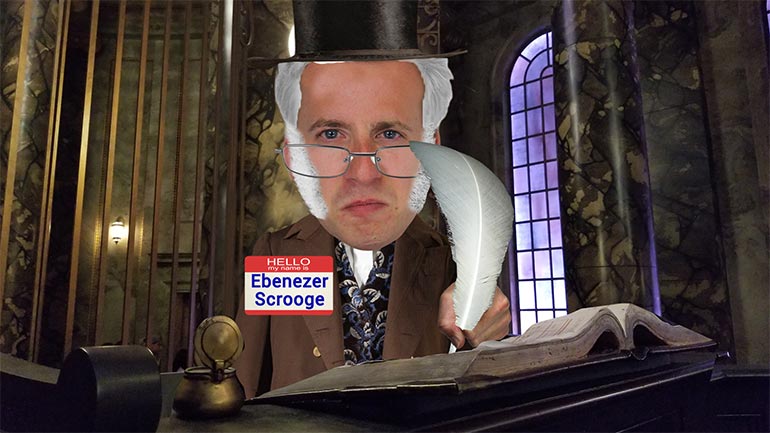Five Cs Of Credit
The 5 Cs of credit are location, location, location.
Wait, no, that’s not right. Those are the three rules of real estate. Let’s try that again.
The 5 Cs of credit are character, capacity, capital, collateral, and conditions, and they are what guide lenders on whether or not they should loan us money. Let’s see about those Cs…
“Character” is less about our personal charisma and more about our financial reputation. Do we pay our bills? Do we pay them on time? Are we now or have we previously been bankrupt? Are there any tax liens against us? Basically, if someone were to judge us solely on our financial history, would we look like a good person?
“Capacity” looks at how much we make and how much we owe, and tries to figure out if we can afford to pay back the loan we’re trying to get.
“Capital” is how much of our own money we can fork over toward whatever we’re trying to finance. For example, if we’re trying to buy a house, we’re more likely to get a loan if we can put down a 20% down payment versus only putting down a 10% down payment.
“Collateral” is stuff that we own that we can put up against a loan. Like...let’s say we’re trying to buy a vacation house in the Florida Keys. In order to secure the home loan, we put our house in Denver up for collateral. This means that, if we default on the Keys loan, the bank can get what we owe them from the value of our Colorado house.
And last but not least, certain “conditions” might come into play. Are we taking out a loan to add a garage onto our house, or are we just borrowing money for vague and unspecific purposes? Are we trying to grow a business that impeding regulations might shut down completely within the next year? Is the economy in general about to tank, making it less likely we’ll be able to repay the loan?
On the one hand, this can seem like a lot of stuff to keep track of. But on the other, we guess it’s nice to know that lenders are trying to get a big-picture view of our financial situation before they support—or crush—our financial dreams.
Related or Semi-related Video

Finance: How Do Credit Card Companies Wo...116 Views
finance a la shmoop. how do credit card companies work? you could write a
book on this but don't. it'll hurt instead think about a credit card [man carries huge book and grimaces]
company is kind of twisted moneylender who really makes money in two ways.
well first they make money from the people who take your credit cards like
when you use your credit card to lovingly pay shmoop 20 bucks a month for our
awesome content. thank you very much. that $20 charge carries about a 1% hit. from
the credit card company that is the hard-working elves here at shmoop only
keep about nineteen dollars and 80 cents from that twenty you just paid. credit [equation]
card companies need to pay for their jets right? well that one transaction was
just 20 cents but there are gujilion's of them so the dough adds up to billions
and billions really fast. unless do you think the job of being a credit card
company is easy, note that every few thousand transactions is done by some
bad actor like no different kind of bad actor. you know meaning of theif someone
behaving badly they've stolen your card and if race to Best Buy [man runs out of store carrying TV]
hoping to abscond with ten flat screens to sell on the street corner and make a
fast buck. while the credit card company is generally responsible for those
frauds against mankind and have to hunt down the bad guys .so that's one way
they make money. the other way credit card companies get paid is that they get
money from consumers who use them either directly or indirectly directly. means
something like an annual fee. and then there are charges well you know that is
if you don't pay off your credit card bill each month you carry what is called [credit card rates listed]
a balance. and on those amounts you pay huge interest. like for many buyers on
credit the fee is 15 to 20 percent per year these days and sometimes more. so if
you bought a thousand dollar television set with your 20% credit card and didn't
pay it off for three years you'd have paid $200 a year in interest for three
years or $600. do you think Visa Mastercard or Amex pay 20% interest for
the money they borrow to lend to you? hardly they pay very very low interest
rates like just a few percent in there so on the [visa employees pictured]
20% they charge you an interest to punish you for not paying off your
credit card their cost is more like 2% I either making like an 18% spread or
profit margin on that money. the 600 bucks you paid for renting the grand for
3 years from the kindly loving people at visa
Oh made visa over 500 bucks on that money nice. work if you can get it and [equation]
you know a really nice jet.
Up Next
What are credit ratings and how are they interpreted? Credit ratings describe a borrower’s likelihood to pay back their debts; it’s a look at h...
What is a line of credit? A line of credit is kind of like a loan. A bank gives a borrower a line of credit, which basically says they can borrow �...

